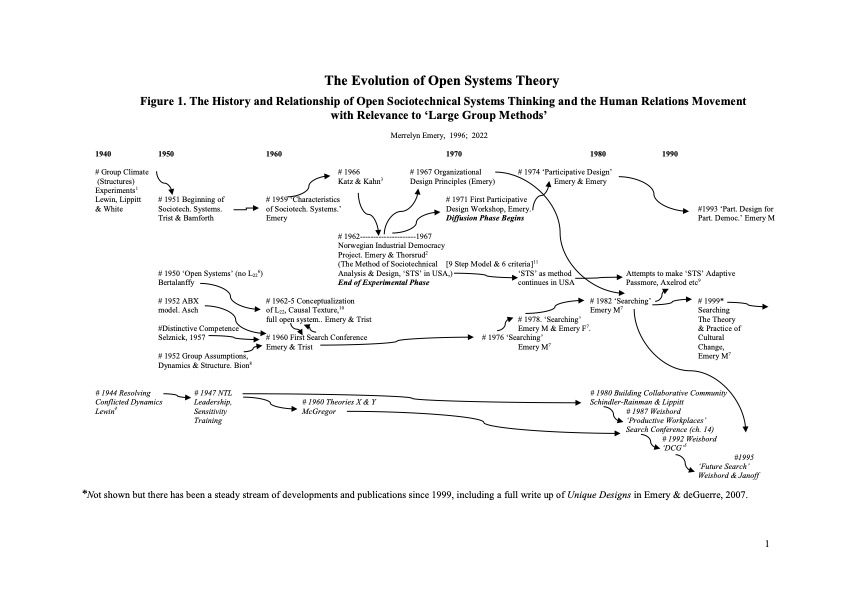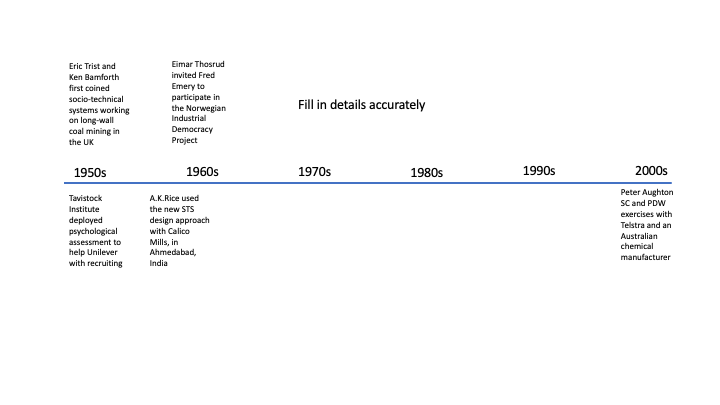Scientific Background
Open Systems Theory has roots in a number of areas. The first, and most significant, is Socio-Technical Systems (Trist and Bamforth). It extends Socio-Technical Systems by embracing the Open Systems ideas of Von Bertalanffy and Andras Angyal. It also embraces the social and organisational psychology theories of Kurt Lewin and the group dynamics studies of Wilfred Bion.
The theory evolution is depicted below:

This diagram comes from Merrelyn Emery’s website and can be found in the paper titled, “The Evolution of Open Systems Theory”. It is well worth reading the full paper which you can download here.
The diagram above gives Merrelyn Emery’s perspective which, given her long association with the source material, is the best starting point.
Other useful sources are:
- The Tavistock anthologies, which can be found on The Modern Times Workplace website here. There are 3 anthologies, all roughly 700 pages, entitled:
- Volume I – The Socio-Psychological Perspective
- Volume II – The Socio-Technical Systems Perspective
- Volume III – The Socio-Ecological Perspective
- A more condensed version is David Ing’s Systems Thinking wiki, where he summarises the Penguin book, Systems Thinking: selected readings, edited by Fred Emery and published in 1969.
Eric Trist has written a paper on the evolution of Socio-Technical Systems, published here in 1981. Whilst perhaps not as comprehensive in terms of academic threads as Merrelyn’s evolution paper (and focussed on STS not OST), it is a useful read and dives into the Norwegian industrial democracy project.
Real-World Projects
The Tavistock Institute conducted their research through a process we term action research, in other words these were not laboratory experiments but experiments conducted by effecting change in the workplace. The method of Action Research is described in this paper by deGuerre:
The first significant project involving Socio-Technical Systems was an exploration of the Longwall method of coal mining in the north of England. This is written up in the paper below:
http://moderntimesworkplace.com/archives/ericsess/sessvol2/Trist___Bamforth_1.pdf

Norwegian industrial democracy project is one of the foundational steps in the formation of OST. Fred Emery was invited by Einer Thorsrud to visit Norway to explore ways to avoid a perceived alienation of workers in industrial settings. This project is described in the following paper:
http://moderntimesworkplace.com/archives/ericsess/sessvol2/14EMHIST.pdf
